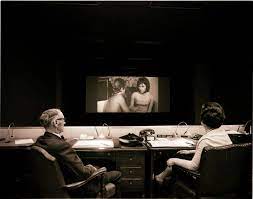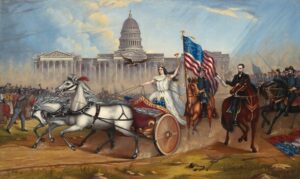The Maryland State Board of Censors (1916-1981) is removed from the state budget as a cost-cutting measure. Although it is the longest-existing state-run censorship board in the country, the Maryland General Assembly decides the 3 person operation is no longer worth its $100,000 expenditure.
The Board begins its operation during World War I and for six decades no film can be shown in Maryland without its approval. After 1960, as films become more liberal in their inclusion of violence, language and sex, Board member Mary Avara (1910-2000) becomes the spokesperson for why censorship is necessary in a changing world.
Watching films, Avara comments “gigantic closeups of the worst-looking things I ever seen (sic) in my life. I make up my own ratings, G for Garbage and R for rotten. How else could you describe such filth?”
She is a frequent guest on national talk shows, defending her position and arguing with celebrities. Avara has a special rating for John Waters films: RT for real trash. Waters responds in kind. “I look at her crooked wig hat and polyester pants suit and realize there is no point in arguing style.”






